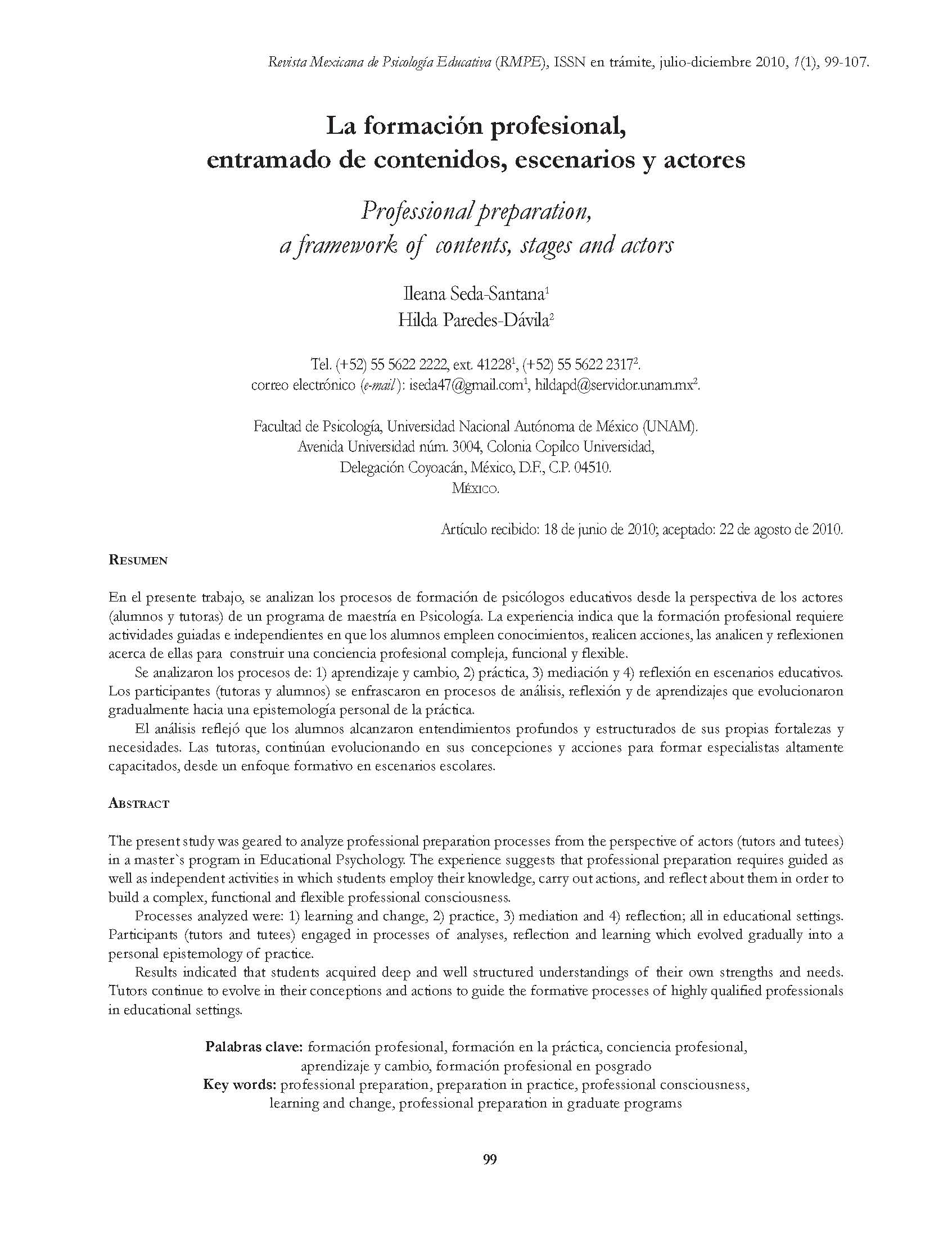Abstract
The present study was geared to analyze professional preparation processes from the perspective of actors (tutors and tutees) in a master`s program in Educational Psychology. The experience suggests that professional preparation requires guided as well as independent activities in which students employ their knowledge, carry out actions, and reflect about them in order to build a complex, functional and flexible professional consciousness.
Processes analyzed were: 1) learning and change, 2) practice, 3) mediation and 4) reflection; all in educational settings. Participants (tutors and tutees) engaged in processes of analyses, reflection and learning which evolved gradually into a personal epistemology of practice.
Results indicated that students acquired deep and well structured understandings of their own strengths and needs. Tutors continue to evolve in their conceptions and actions to guide the formative processes of highly qualified professionals in educational settings.
References
Bransford, J. D., Brown, A. L. y Cocking, R. R. (2000). How people learn:Brain, mind, experience and school. Washington, D.C.: National Academy Press.
Coll, C., Mauri, T. y Onrubia, J. (2006). Análisis y reso- lución de casos-problema mediante el aprendizaje colaborativo. Revista de Universidad y sociedad del conocimiento, 3(2), 29-40.
Fullan, M. (2005). The meaning of educational change: A quarter of a century of learning. En A. Lieberman (Ed.), The roots of educational change (pp. 202-216). Springer: The Netherlands.
Hargreaves, A. (2003). Enseñar en la sociedad del conocimiento.
Barcelona : Octaedro.
Kintsch, W. (1998). Comprehension: a paradigm for cognition.
Cambridge: Cambridge University Press.
Macotela, S. y Paredes, H. (2003). Formación de psicó- logos escolares con base en un modelo de supervi- sión experta en campo. Enseñanza e Investigación en Psicología, 8(1), 5-23.
Moll, L. C. (1990). Vygotsky and Education: Instructional implications and applications of sociohistorical psychology. Cambridge, UK: Cambridge University Press.
Organización para la Cooperación y el Desarrollo Económicos (2005). Educación para adultos: Más allá de la retórica. México: Fondo de Cultura Económica.
Richardson, V. (1990). Significant and worthwhile change in teaching practice. Educational Researcher, 19(7), 10-18. Schön, D. A. (1992). La formación de profesionales reflexivos.
Barcelona: Paidós.
Seda, I. (1994). Commentary on ‘Portfolio assessment: Experiences at the Kamehameha elementary edu- cation program’. En S. Valencia, E. Heibert y P. Afflerbach (Eds.). Authentic reading assessment (pp. 127-133). Newark, Delaware: International Reading Association.
Vygotsky, L. (1978). El desarrollo de los procesos psicológicos superiores. Madrid: Grijalbo.
Zabalza, M. A. (2007). Competencias docentes del profesorado universitario: calidad y desarrollo profesional. Madrid: Narcea.

This work is licensed under a Creative Commons Attribution-NonCommercial-NoDerivatives 4.0 International License.
Copyright (c) 2024 Universidad Nacional Autónoma de México


